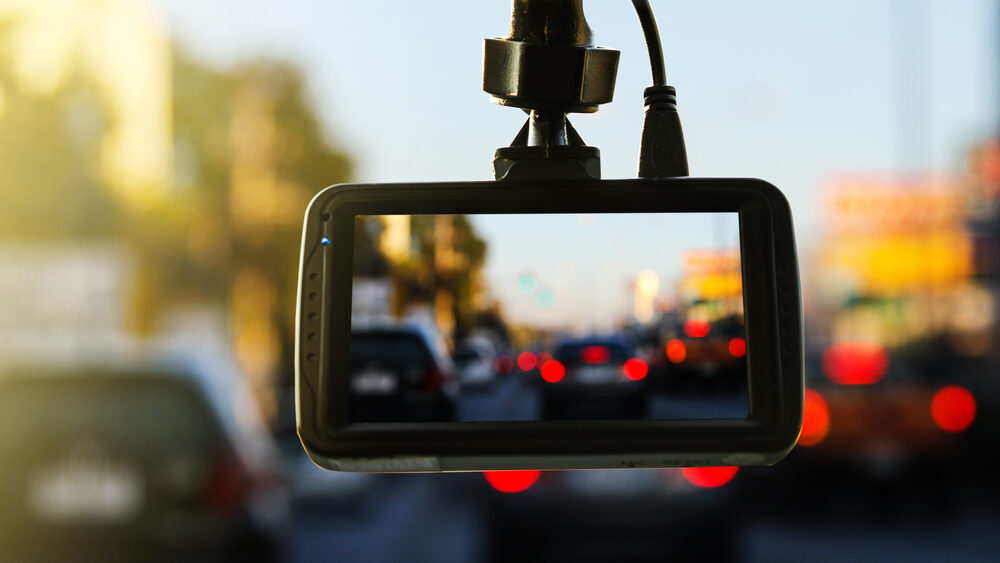Dash cams, or dashboard cameras, have become increasingly popular tools for drivers seeking to improve safety and document events on the road. They present significant potential benefits in the event of an accident or to capture unexpected road events. However, if you’re driving in New Jersey, understanding the state’s specific dash cam regulations is essential.
The Legality of Dash Cams in New Jersey
It’s perfectly legal to use a dash cam in your personal vehicle in the state of New Jersey. While there’s no law explicitly addressing dash cams, their use falls under the state’s existing regulations regarding windshield obstructions.
Windshield Mounting Restrictions
New Jersey law aims to ensure drivers have a clear and unobstructed view of the road. The key rule to remember is that no non-transparent materials can be placed on your windshield or on the driver or passenger side windows.
This means:
- No Windshield Mounting: It’s illegal to mount your dash cam directly on the windshield.
- Dashboard is Preferred: The most suitable location is the dashboard on the passenger side, where it won’t block your view.
- Other Options: Some acceptable alternatives include the rearview mirror, as long as it doesn’t impede visibility, or specialized mounts located lower on the windshield that comply with obstruction laws.
Audio Recording Considerations
New Jersey is a “two-party consent” state when it comes to audio recordings. This means that if your dash cam has the capability to record audio, you must inform all occupants of the vehicle that their conversations may be recorded.
- Disabling Audio: The safest approach is to disable the audio recording function, especially if you regularly have passengers.
- Obtain Consent: If audio recording is vital to you, always get explicit consent from others in the vehicle before starting a recording.
Commercial Vehicle Use of Dash Cams
The same regulations generally apply to commercial vehicles in New Jersey. However, employers should be aware of additional considerations:
- Company Policy: Establish a clear policy regarding dash cam use in company vehicles, including how footage will be monitored and stored.
- Employee Notification: Inform all employees that dash cams may be in use and obtain consent for any audio recording if applicable.
- Privacy Concerns: Be mindful of privacy rights, especially if cameras record areas beyond the front windshield. Balancing driver safety and employee privacy is critical.
Using Dash Cam Footage as Evidence
Dash cam footage can be valuable evidence in numerous situations:
- Insurance Claims: It can help establish fault in accidents and make insurance processes smoother.
- Traffic Violations: Video proof of traffic violations by other drivers can support your case.
- Legal Disputes: Dash cam footage could be admissible in court depending on the circumstances and relevance.
Best Practices and Tips for Dash Cam Use in New Jersey
- Placement is Key: Mount according to New Jersey regulations for optimal footage without hindering your driving.
- Audio Considerations: Decide whether audio recording is necessary and how you’ll handle consent requirements.
- Regular Maintenance: Make sure your dash cam is working correctly, the memory card has space, and the lens is clean.
- Choose the Right Camera: Invest in a dash cam with features like high resolution, night vision, and loop recording to meet your needs.
- Data Storage: Safely store footage you may want to use as evidence. Consider cloud storage options for additional protection.
- Review the Law: Stay updated on any changes to New Jersey’s regulations regarding dash cams.
Sources
- The 2024 Guide To Dash Cam Laws in Every US State – Expert Market: https://www.expertmarket.com/dash-cams/dash-cam-laws-by-state
- Are Dash Cams Legal in My Area? Dash Cam Laws in Every US State – BlackboxMyCar: https://www.blackboxmycar.com/pages/are-dash-cams-legal-in-my-area-dash-cam-laws-in-every-us-state



